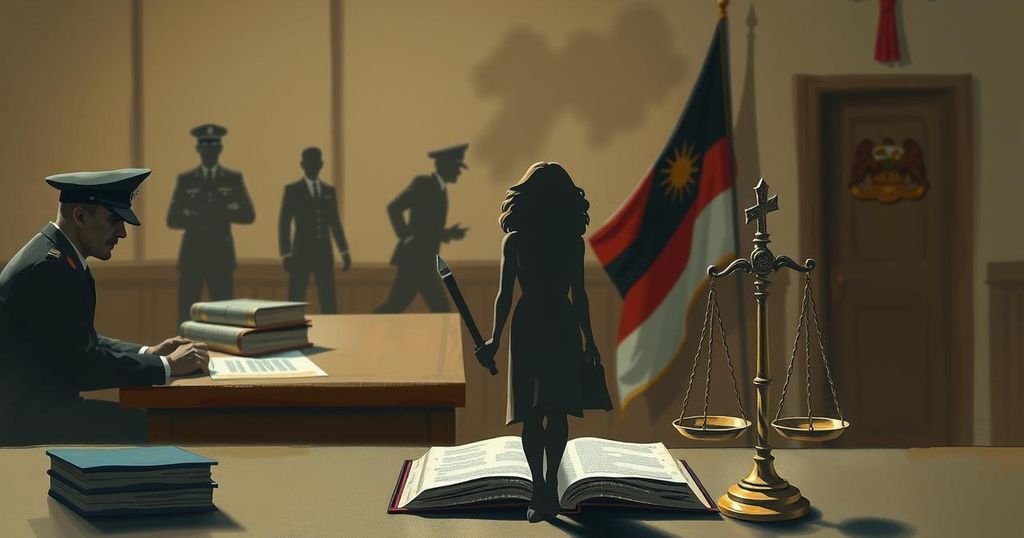Ugandan lawmakers have passed a controversial bill enabling military courts to try civilians, countering criticism from opposition and rights groups. The legislation follows a Supreme Court ruling against military trials for civilians and is seen as a threat to democracy as elections approach in 2026. President Museveni is likely to sign the bill shortly, prompting fears of increased authoritarianism.
On Tuesday, Ugandan lawmakers approved a controversial bill allowing military courts to try civilians, sparking significant criticism from various opposition groups and rights activists. This development follows a Supreme Court ruling declaring that civilians should not be subjected to military trials, raising concerns over the suitability of military personnel for judicial roles. The bill specifies that civilians could be tried if their alleged crimes are connected with individuals subject to military law, with an emphasis on requiring qualified legal presiding officers.
Critics denounce the legislation as anti-democratic, arguing that it threatens anyone opposed to President Yoweri Museveni, who has been in power since 1986. As the country gears up for elections in 2026, dissenters fear that this move serves to solidify authoritarian control. Some opposition legislators chose to exit the parliamentary session in protest, asserting that the passage of the bill was illegitimate.
Rights organization Chapter Four issued a statement asserting that this law seeks to unlawfully bestow judicial powers meant for higher courts onto military courts, which ideally should focus solely on military disciplinary issues. It seems inevitable that President Museveni will sign the bill into law soon. He and his son, General Muhoozi Kainerugaba, openly criticized the Supreme Court’s previous decision to limit military trials.
In reacting to the court’s judgment, Museveni indicated that, “the country is not governed by the judges.” The upcoming elections, set for January 2026, already are generating discussion on a possible political transition, especially since Museveni has served for decades and has yet to indicate a clear successor from his ruling party.
Speculation continues about the possibility of Kainerugaba, the army commander, positioning himself to take over power in a peaceful coup. He has expressed intentions of succeeding his father. Meanwhile, a longstanding opposition figure, Kizza Besigye, remains in jail, facing alleged treason charges that his legal representatives argue are politically driven. Besigye previously held the title of president for the Forum for Democratic Change, a key opposition movement in Uganda. Historically, the nation has not experienced a peaceful transfer of political authority since it gained independence in 1962.
With this new legislation, Uganda is witnessing significant shifts in its judicial system as military courts gain new authority over civilian cases. The implications for democracy and civil rights are profound, especially as the country approaches critical elections in 2026. Ongoing concerns regarding President Museveni’s authoritarian tendencies and the potential rise of his son as a future leader complicate an already tense political landscape.
Original Source: www.newsday.com






